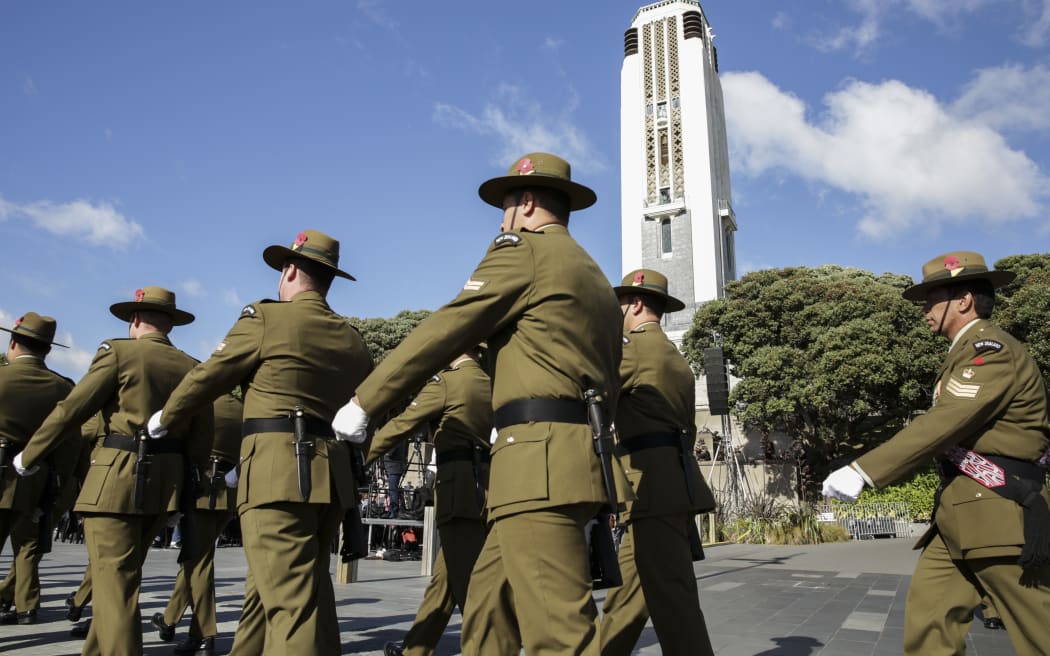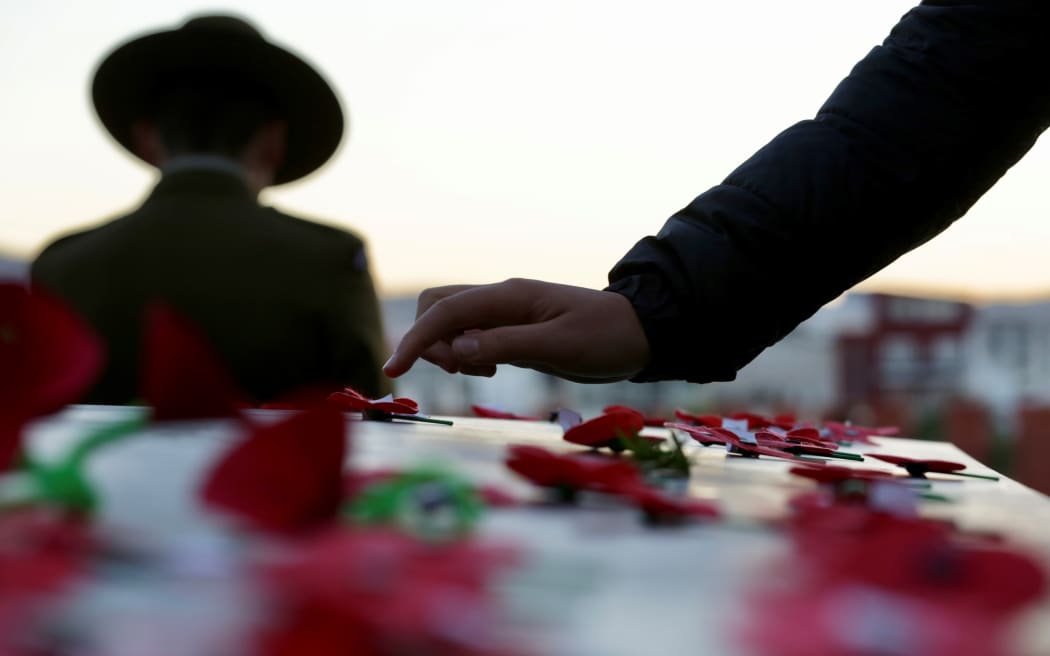The Returned and Services Association is welcoming a plan to support veterans' wellbeing but says it has been a long time coming.

Mental health problems stemming from military service can take over a decade to develop, the RSA says. Photo: RNZ / Richard Tindiller
The new policy framework has identified veterans as a vulnerable group and provides guidelines for helping them and their families.
It showed veterans were likely to have higher levels of mental health issues as well as addiction and gambling problems than the general population.
In 2018 a report into mental health and addiction also identified veterans as a vulnerable group.
Of the 40,000 veterans living in New Zealand, around one quarter are receiving support for conditions like depression and post-traumatic stress disorder.
RSA support services manager Danny Nelson said mental health problems that arise from military service can take over a decade to develop.
Addressing these issues head-on was vital, he said.
READ MORE
- Nuclear test veterans encouraged quest for apology will succeed
- How New Zealand defines and recognises veterans
- Another Great But Broken Promise?
"It's that very staunch 'I can get through it, I can beat it through logic or whatever' but of course the more you bottle it, and as you get older time marches on, to keep the lid on these sorts of things becomes harder and harder," Nelson said.
He welcomed the new support framework - and hoped it would be enough.
"It's good and it highlights the issues. I think the situation could be more dire than it is perhaps portrayed."
Veterans' Affairs Minister Meka Whaitiri said she was amazed that there was not already proper recognition of the impact military service can have on veterans' health.
"I'm convinced that when the need is known and people work together to meet it, our veterans and their whānau will be well placed to live their best possible lives."
She said the framework was an important resource for agencies working to support veterans.
Head of Veterans' Affairs Bernadine MacKenzie told a gathering at Parliament yesterday that the framework's launch was an important milestone.
"This hasn't finished, this is but a beginning. Like you I feel personally really privileged to have been part of the round table and to have the wisdom and the knowledge of those who have served and to learn more about what that means."
Vietnam War veteran Rob Munro was hopeful that the support on offer will be more proactive than in the past.
"It needs more active arrangements to follow things up. I don't doubt that people do their very best but the system needs improvement."
He said while some aspects of veteran support are done well, the shift to a mental health focus was badly needed.

Commemorations in Wellington at Pukeahu National War Memorial Park. Photo: RNZ / Richard Tindiller




